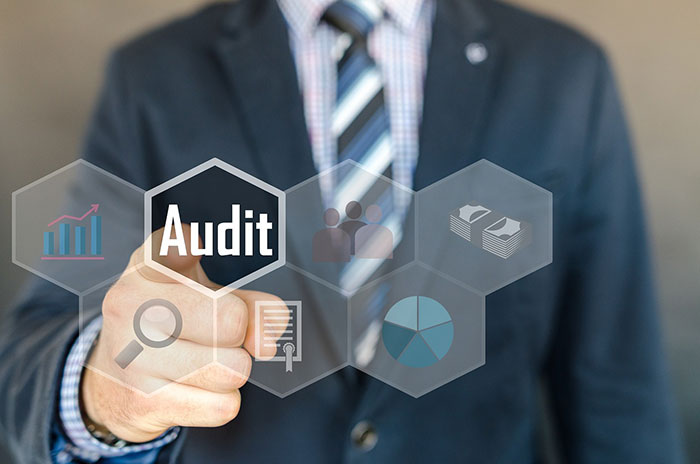According to the CRA’s web pages on audits (there’s one for individuals and one for businesses), “The CRA’s risk-assessment systems identify tax returns that are considered to be at high risk for non-compliance.” In other words, the likelihood of tax reporting mistakes or non-compliance based on your individual demographic info, employment type, business activities, industry and/or past mistakes and non-compliance is what will likely flag your return for review by a person working for the CRA.
While those external factors impact the likelihood of a tax audit in Canada, there are other income tax reporting decisions that can also attract scrutiny to your return and possibly trigger a CRA audit.
A Closer Look at the Big Picture Reasons A Taxpayer is Audited
Generally speaking, there are a few categories of taxpayers that are considered at high risk of inaccurate reporting. Four of the most common include taxpayers who were found to have misreported in previous audits, self-employed individuals, taxpayers with offshore assets and businesses with a high volume of cash-based transactions like bars, restaurants, contractors, barbers, etc.
While anyone can be subject to an audit in any number of situations, like after filing taxes late, for example, returns are constantly flagged for review for the following reasons:
- A tax audit project on a certain group of taxpayers. Sometimes the CRA will select a demographic of taxpayers to gauge the level of non-compliance within the group. If the CRA discovers frequent non-compliance during that test, they may choose to audit the cohorts of that group as part of a tax audit project.
- A return falls within the CRA’s software parameters. CRA’s software is capable of finding discrepancies in individual income and expense items based on previous returns as well as the likelihood of them in certain demographic groups, industries etc.
- During the process of investigation. A taxpayer who is/was under criminal investigation, for example, may be referred to the CRA for review of their income tax returns. Taxpayers who have been audited before or those who have attracted suspicion from outside of the CRA are also at an elevated risk of a CRA audit.
- Connected returns. If a return is selected for audit, any returns that are connected/related to it are also likely to get audited.
While there may be some overlap as small business owners (e.g., sole proprietorships) and self-employed taxpayers essentially report the same as an employed individual, the following tax reporting activities that can trigger a CRA audit can apply to both personal and business returns.

Tax Reporting Behaviours that can Trigger a CRA Audit
The CRA has all kinds of data, and as its software gets smarter, it’s able to make more and more multiple comparisons between line items in every return and various data sets.
When it comes to individual tax returns, the more experienced CPA firms in Toronto will tell you that the following reporting behaviours can get your return flagged for review and possibly an audit:
- Underreporting your income. What you report can be checked against your old returns and others in your profession and industry.
- Lifestyle and income reporting mismatches. The CRA can tell by the value of your home (and your other assets and investments) and by the value of the homes in your neighbourhood how much yearly income is required to maintain your lifestyle.
- Inconsistencies and nonpayment of GST/HST. If you report differing amounts on these returns, the system will likely flag you.
- Continually reporting business losses. It’s unrealistic that a business can sustain losses over many years.
- Unusually large amounts of charitable donations. The CRA looks at the amounts you donate and compares them with your reported income to ensure your donations aren’t disproportionately high.
- Not reporting income from all of your T-slips. The CRA receives copies of T4, T4(OAS), T4(p), T5, T4A, etc., that you receive. If any aren’t included in your return, expect to be contacted by the CRA.
- Corporate loans to shareholders that are not repaid within the year or occur regularly. This appears to the CRA as income that’s not being reported by the shareholder.
- Unusually high expense reporting for home-based businesses. As with other industry statistics, if your expenses are unusually high for a home business, expect an audit.
A Quick Look at the CRA Audit Process
When a tax return is selected for an audit, the taxpayer is contacted by letter only. They’re advised of the upcoming CRA audit process and may be asked to provide preliminary information regarding their return.
During the audit, a CRA representative reviews any new information you provide regarding your return or the line item(s) in question. Taxpayers are also usually required to provide proof or paperwork. Documents usually requested by the CRA can include:
- Personal financial records like bank statements, bills, mortgage papers, etc.
- Business records such as contracts, receipts, invoices and deposit slips.
- Financial records, whether business or personal, of persons or businesses that are connected to your return.
After reviewing your documents and your statements, the auditor will discuss any discrepancies they find. Your answers may have an impact on the outcome of your audit. If you do receive notice of an audit, seek the advice of a CPA to help you prepare and possibly represent you at the audit.
When the audit is completed, the auditor will decide that either:
- No reassessment is needed. If they are able to reconcile your statements and paperwork with your return, the audit process ends, and you will receive a letter as confirmation.
- A reassessment is recommended. If, however, the auditor does not accept your answers or documentation, they will recommend that a reassessment be done on your return. You will receive a proposal letter stating the reasons for their decision and the amount of taxes you should pay (or be refunded.)
You have 30 days to notify the CRA that you intend to dispute the auditor’s findings. If you don’t respond within that time, your return will be reassessed according to the proposal, which likely means that you will have to pay more in taxes.




